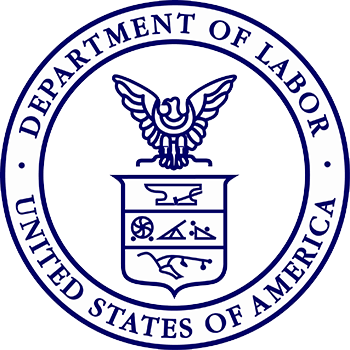The U.S. Department of Labor’s (DOL) new proposed rule affecting federal contractors aims to broaden protections for religious organizations that do business with the federal government, leading some to worry about its possible effects.
 The DOL’s Office of Federal Contract Compliance Programs (OFCCP) published a Notice of Proposed Rulemaking in the August 15 Federal Register. The DOL’s announcement says the proposal is intended to clarify the civil rights protections afforded to religious organizations that contract with the federal government: “The proposed rule ensures that conscience and religious freedom are given the broadest protection permitted by law.”
The DOL’s Office of Federal Contract Compliance Programs (OFCCP) published a Notice of Proposed Rulemaking in the August 15 Federal Register. The DOL’s announcement says the proposal is intended to clarify the civil rights protections afforded to religious organizations that contract with the federal government: “The proposed rule ensures that conscience and religious freedom are given the broadest protection permitted by law.”
The proposed rule has sparked worries that it will allow contractors to claim their religious beliefs should allow them to deny employment to LGBTQ people as well as women and other minorities.
The DOL announcement says the rule “is rooted in statute, Supreme Court decisions, and Executive Orders.” One of the Supreme Court cases cited is Masterpiece Cakeshop v. Colorado Civil Rights Commission, in which the Court in 2018 ruled in favor of a Colorado baker who refused to bake a cake to celebrate a same-sex marriage. Another case cited is Burwell v. Hobby Lobby Stores, in which the Court ruled in 2014 that retailer Hobby Lobby could avoid complying with the Affordable Care Act’s contraception mandate on religious grounds.
Despite laws and court precedents, the effect of the proposed rule isn’t clear, according to Jo Ellen Whitney, an attorney with the Davis Brown Law Firm in Des Moines, Iowa, and an editor of Iowa Employment Law Letter.
Whitney says it’s important to remember the OFCCP rule relates to organizations that are federal contractors. Also, information from the agency “indicates specifically that it does not exempt religious organizations from all nondiscrimination requirements.”
“In essence, this doesn’t really give us much practical guidance on what will occur or how the new guidance will be used,” Whitney says. “It does seem clear that if used in the way anticipated, it will disproportionately affect the LGBTQ community and possibly women as these groups have been the most affected by recent rulings such as Masterpiece Cake and Hobby Lobby.”
Whitney also points out that many states have civil rights laws that offer more protections for various protected classes, so while the OFCCP might look at situations one way, state agencies might differ.
“From a purely practical standpoint, limiting whom you hire in a tight labor market for any reason not related to the work done doesn’t seem like a very good business decision and would certainly be one that could leave you open to challenge under state law,” Whitney says.
Mark I. Schickman, an attorney with Freeland Cooper & Foreman LLP in San Francisco and an editor of California Employment Law Letter, also emphasizes that the proposed rule affects just federal contractors and is based on the notion that the federal government can choose to contract with whomever it wants, but the proposed rule does open the door to much greater restrictions in hiring while still complying with OFCCP regulations.
“It appears to make extreme deference to an institution that says it has a religious purpose,” Schickman says. If an organization says it has a religious purpose, the government isn’t going to second-guess that claim.
The proposed rule relies on the Hobby Lobby case, which shows it’s possible for a closely held for-profit corporation to qualify for protection on religious grounds, Schickman says. That notion probably wouldn’t be judged to be the law for Title VII of the Civil Rights Act of 1964, which prohibits discrimination based on religion as well as other protected characteristics, but OFCCP rules are based on contract principles.
The proposed rule “broadens where the OFCCP was significantly,” Schickman says.
Tammy Binford writes and edits news alerts and newsletter articles on labor and employment law topics for BLR web and print publications.
